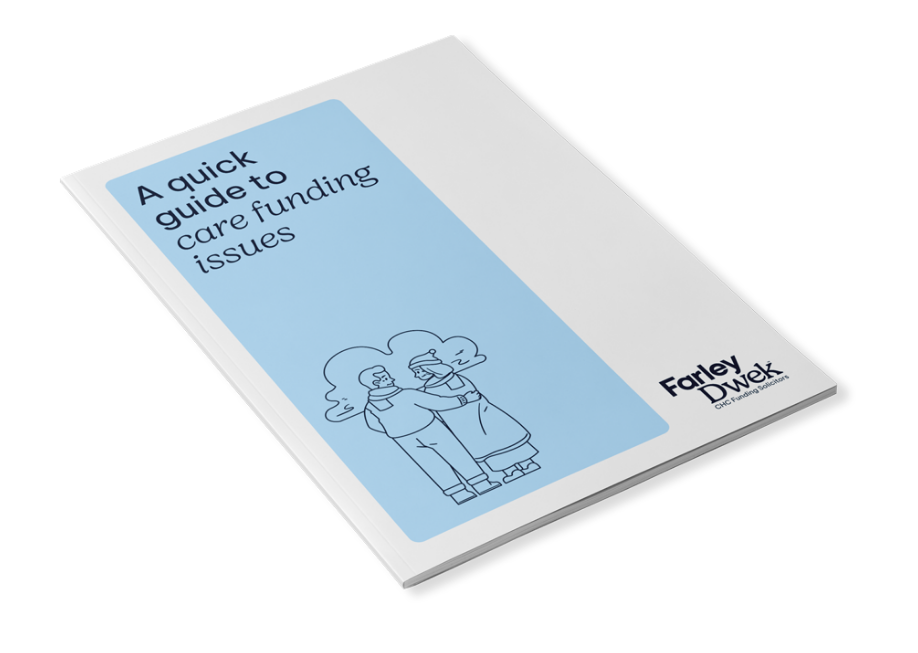Specialists in Continuing Healthcare Funding
Case studies & success stories
A number of our clients have been good enough to allow us to share their stories in the media, to help raise public awareness of care funding issues and so that more people can understand their entitlement to NHS Continuing Healthcare Funding. Here are some of their stories…
Maria's story
We helped with
CHC funding
Spanish born Maria, who met James’ father while he was serving in the army in Gibraltar before marrying in 1956, fell ill with Alzheimer’s and was living in a residential home when her condition deteriorated.
Edward's story
We helped with
CHC funding
Marion Wilson was already receiving NHS Continuing Healthcare Funding but the family was called to a re-assessment of her situation and they wanted to make sure funding wasn’t removed.
Alice's story
We helped with
CHC funding
When Alice Newton (88) entered a care home five years ago she was told that she would not be eligible for any kind of funding.
Brian's Story
We helped with
CHC funding
Brian Marshall is waiting for a cheque for more than £40,000 after his father was wrongly charged for care home fees.
Peter's Story
We helped with
CHC funding
Peter Shaw is a retired teacher from Pickering in North Yorkshire. He had to sell his mother’s home in order to pay for her care home fees.
Leslie & Jean's story
We helped with
CHC funding
Mr Leslie and Mrs Jean Needham from Rotherham, South Yorkshire, were both admitted to different care homes by Rotherham PCT and then Barnsley PCT.
Mr Barrow's Story
We helped with
CHC funding
Mr Barrow, 78, of Ashford in Kent applied for NHS Continuing Healthcare Funding for his mother in law, aged 89 and says Farley Dwek helped to successfully secure funding which saves his family £1,400 per week in BUPA care home fees.
Christopher's Story
We helped with
CHC funding
Christopher Andrews was wrongly told there was no other choice than to self-fund when he was forced to place his parents in a care home.
Geoffrey's story
We helped with
CHC funding
When Geoffrey Matthews’ 94-year-old mother from Flixton went into a care home, he didn’t think twice about whether he had to pay the fees, but as he explains, his mother’s deteriorating health meant she qualified for the little known NHS Continuing Healthcare Funding.
Gilmour's Story
We helped with
CHC funding
Retired legal professional Gilmour Shelley was forced to learn quickly the complex rules around the NHS Continuing Healthcare Funding after his 82-year-old father-in-law was rushed into hospital just after Christmas in 2013.
Barbara's Story
We helped with
CHC funding
Mrs Barbara Brogden was admitted to a nursing home in Leeds 2004 and due to her capital and income the family were told she had to pay for her own nursing care.
Mr Wright's Story
We helped with
CHC funding
Mr Wright, 46, of Norwich was shocked to discover that his late parents Jack and Jean may have paid for care fees unnecessarily and is now taking legal action to try and recover fees of around £70,000 plus interest from Norfolk PCT and Hampshire PCT.



